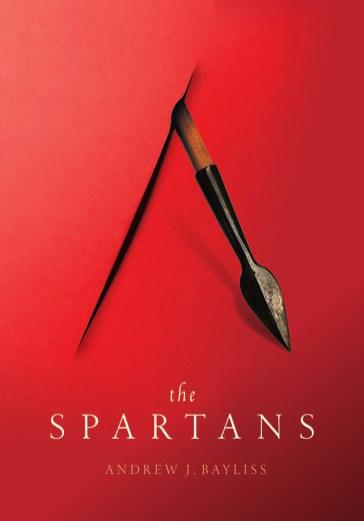The Spartans by Andrew J. Bayliss

Author:Andrew J. Bayliss [Bayliss, Andrew J.]
Format: epub, pdf
ISBN: 9780192594525
Google: nevqDwAAQBAJ
Amazon: 0198853084
Publisher: OUP Oxford
Published: 2020-05-24T23:00:00+00:00
Reading, Writing, and Arithmetic?
Outsiders often alleged that the Spartans were unschooled academically. The Athenian Isocrates claimed that the Spartans ‘do not even learn their letters’, while Hippias of Elis (a famous fifth-century bce sophist) said ‘many of them do not know how to count’. Because of these early criticisms Plutarch’s claim that ‘Spartan boys learned to read and write no more than was necessary’ is sometimes taken as implying that the Spartans could barely read and write at all. But we need to bear in mind that Isocrates’ claims were part of a mendacious diatribe against Sparta intended to show Athenian superiority, and Hippias was aggrieved that the Spartans rejected his offers to teach their youngsters for a fee. It may be simply that the Spartans had a rather different view about what was ‘necessary’, because Sparta was a society where written expression was very much secondary to oral expression.
There are in fact strong grounds for thinking that the majority of the Spartans did learn to read and write. Some stone inscriptions survive from the Classical period. Admittedly there are not many, but there are not really any fewer than survive from the majority of ancient Greek cities. If most Spartans could not read, why would the likes of Arexippus and Damonon have bothered to have their sporting achievements written down on stone? Secondly, officials such as the ephors were required to be able to write, and, as we have seen already, every single Spartiate had a genuine chance to serve as an ephor. The ephors wrote messages to military commanders using a coded message stick called a skytalê. Commanders would be expected to write back too. We are fortunate that one such message has been recorded by Xenophon: ‘Ships lost, Mindarus dead, don’t know what to do’. These words written by a desperate second-in-command after a disastrous naval defeat were necessarily very brief, but the junior officer was clearly capable of writing.
Some modern experts argue that it would have been customary for wealthier Spartan fathers who wanted their sons to be more literate to supplement the meagre state tuition by organizing private tuition from specialist teachers like Hippias of Elis. But this notion clashes outright with Aristotle’s claim that the sons of the rich and poor Spartans were raised in identical manner, and Xenophon’s emphatic statement that whereas other Greeks entrusted their children to private teachers, Spartans entrusted their sons to a state official. The idea that foreign experts might be paid to teach at Sparta is further undermined by Hippias’ own testimony (quoted by Plato) that ‘it is not lawful for Spartans to provide their youths with a foreign education’. That only a very small minority of Spartans attained higher levels of literacy seems likely given the only known Classical-period prose writers Sparta produced were members of the social elite; the Spartan king Pausanias wrote a treatise on Lycurgus, and the general Thibron wrote a history. Both works are lost.
Download
This site does not store any files on its server. We only index and link to content provided by other sites. Please contact the content providers to delete copyright contents if any and email us, we'll remove relevant links or contents immediately.
| Africa | Americas |
| Arctic & Antarctica | Asia |
| Australia & Oceania | Europe |
| Middle East | Russia |
| United States | World |
| Ancient Civilizations | Military |
| Historical Study & Educational Resources |
Magic and Divination in Early Islam by Emilie Savage-Smith;(1194)
Ambition and Desire: The Dangerous Life of Josephine Bonaparte by Kate Williams(1084)
Operation Vengeance: The Astonishing Aerial Ambush That Changed World War II by Dan Hampton(985)
What Really Happened: The Death of Hitler by Robert J. Hutchinson(867)
London in the Twentieth Century by Jerry White(844)
Time of the Magicians by Wolfram Eilenberger(842)
Twilight of the Gods by Ian W. Toll(810)
The Japanese by Christopher Harding(795)
Papillon by Henry Charrière(792)
Lenin: A Biography by Robert Service(777)
The Devil You Know by Charles M. Blow(777)
Twelve Caesars by Mary Beard(764)
Freemasons for Dummies by Hodapp Christopher;(747)
The Churchill Complex by Ian Buruma(729)
Napolean Hill Collection by Napoleon Hill(701)
The Enlightenment by Ritchie Robertson(690)
Henry III by David Carpenter;(685)
Bohemians, Bootleggers, Flappers, and Swells: The Best of Early Vanity Fair by Bohemians Bootleggers Flappers & Swells- The Best of Early Vanity Fair (epub)(679)
The Rise and Triumph of the Modern Self by Unknown(651)
